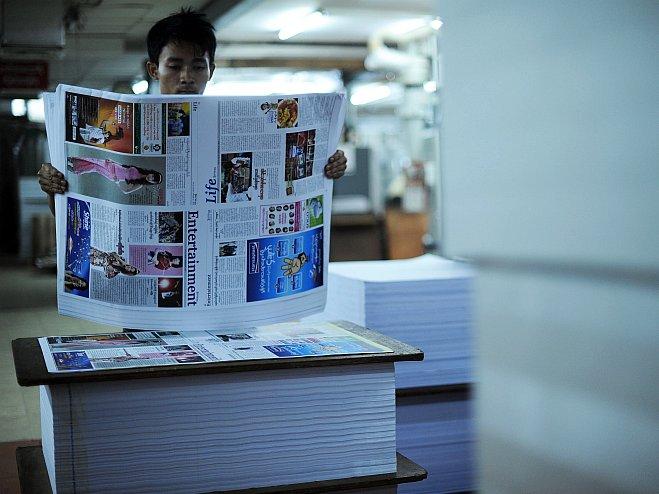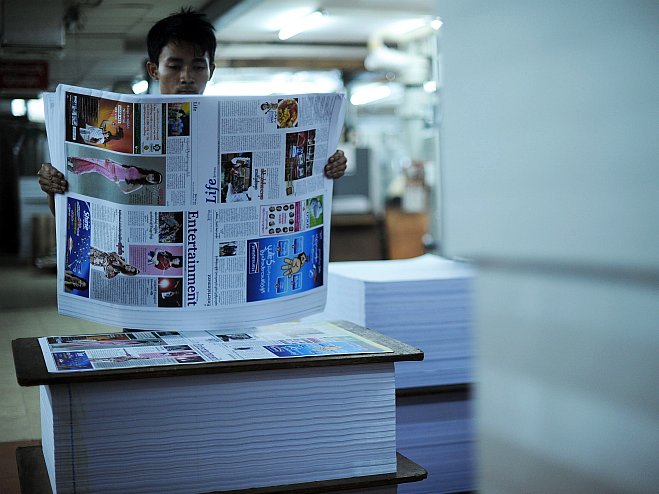In one of its most decisive steps toward democracy, Burma’s quasi-civilian government announced the formal end of media censorship Monday—censorship that was instituted by the former military junta in 1962.
But like many of the recent changes in the long-repressive Southeast Asian country, observers caution that gains do not represent deep reform as long as oppressive laws are still on the books in Burma (also called Myanmar).
The announcement by the head of Burma’s Press Scrutiny and Registration Board (PSRD) Tint Swe, said that media “no longer need to pass the censorship board,” because of policy changes of the Ministry of Information.
Professor Kanbawza Win, former foreign affairs secretary in the 1970s, called the announcement, “one of the most dramatic moves yet toward freedom of expression in the long-repressed nation.”
At the same time, he wrote via email, “It is not enough to restore full media freedom.”
The Committee to Protect Journalists likewise lauded the decision, but called it a partial measure.
Partial Measure
The measure is partial because along with the announcement, the government also imposed a set of 16 guidelines that restrict media.
Debbie Stothard from ALTSEAN-Burma, a regional network supporting human rights and democracy in Burma, dismissed the move as a PR stunt.
“Burmese authorities have certainly upgraded their public relations strategy,” Stothard commented via email.
According to the guidelines, says Stothard, media is ordered to “keep away from writing news and articles or publishing photos that tantamount to encroaching the three main national causes, criticizing in a destructive manner the government’s policy, and containing facts that spoil the international friendship.”
In addition to the guidelines, 11 restrictive security laws that have traditionally constrained political freedoms have also not been repealed, says Stothard. These include the notorious 1950 Emergency Provision Act, the 1908 Unlawful Association Act, the 1975 State Protection Law, and Law 5/1996, which prohibits opposition to the 2008 constitution.
“All ‘progressive’ or ‘positive’ laws enacted by the government are undermined by the existence of the security laws,” says Stothard.
These media laws have often been used to silence and penalize journalists and news outlets for publishing reports that expose corruption, fraud, human rights abuses, and misconduct by the regime and its powerful allies and cronies, according to Tim Aye-Hardy, director of the New York-based Burma Global Action Network.
Moreover, publications can lose their licenses if they are deemed to have harmed the reputation of a government department; publishers can face heavy sentences for inciting the public to unlawful activity under Burma’s penal code.
So the government has go to further down the road to democracy, say activists.
“The government needs to completely overhaul these laws, which are open to interpretation and provide the authorities with powerful means to undermine the freedom of speech and expression. These are vital components of a true democracy,” wrote Aye-Hardy.
A new media law is scheduled to come before the Burmese Parliament later this year. Until then, current laws will remain in place.
The Epoch Times publishes in 35 countries and in 19 languages. Subscribe to our e-newsletter.







